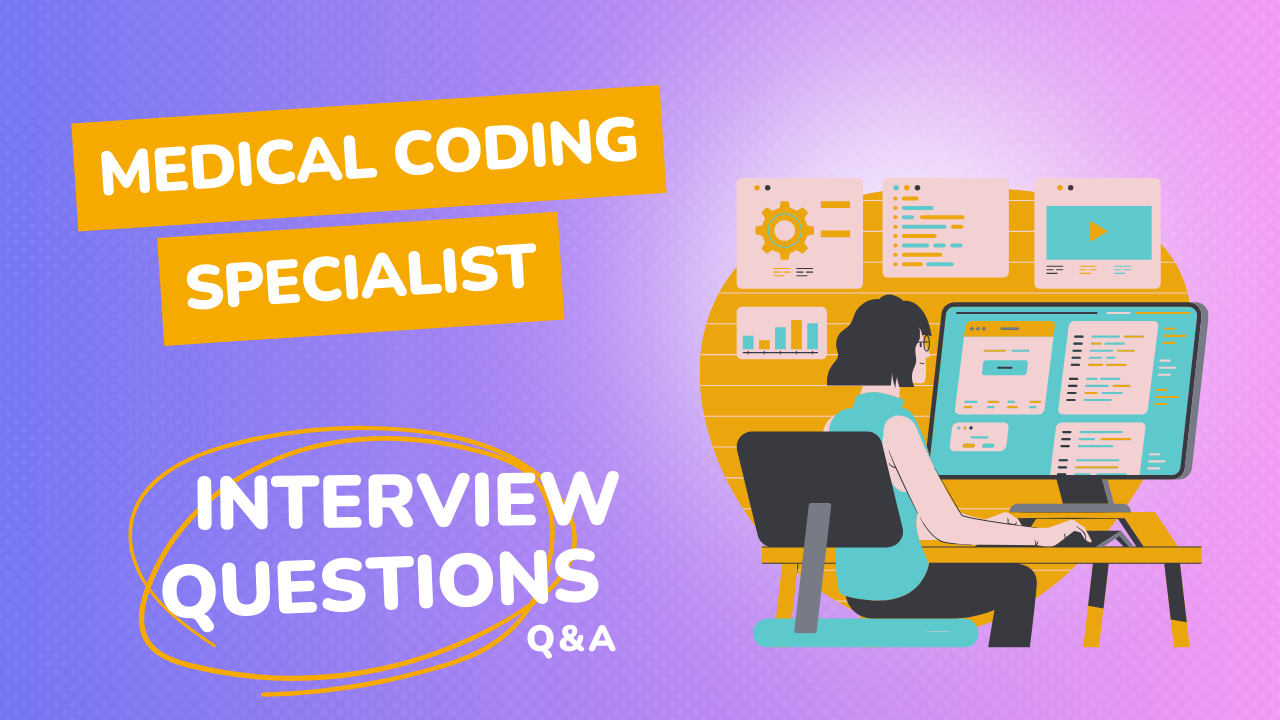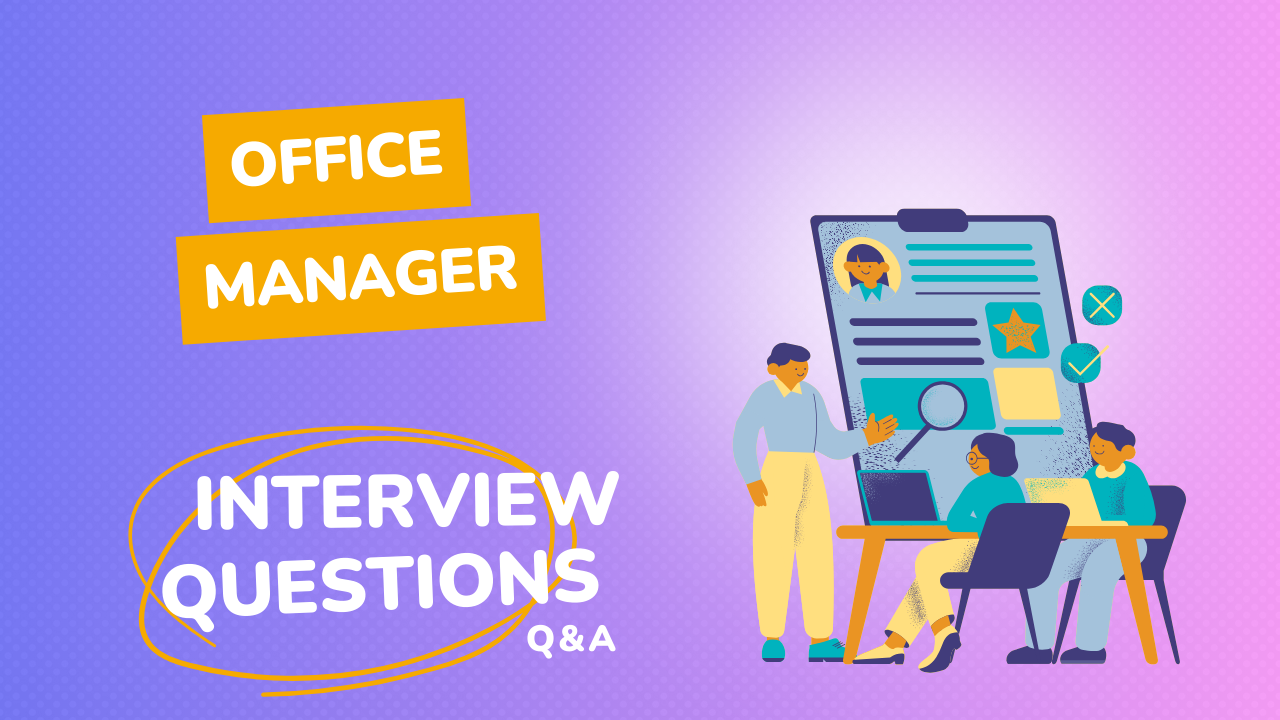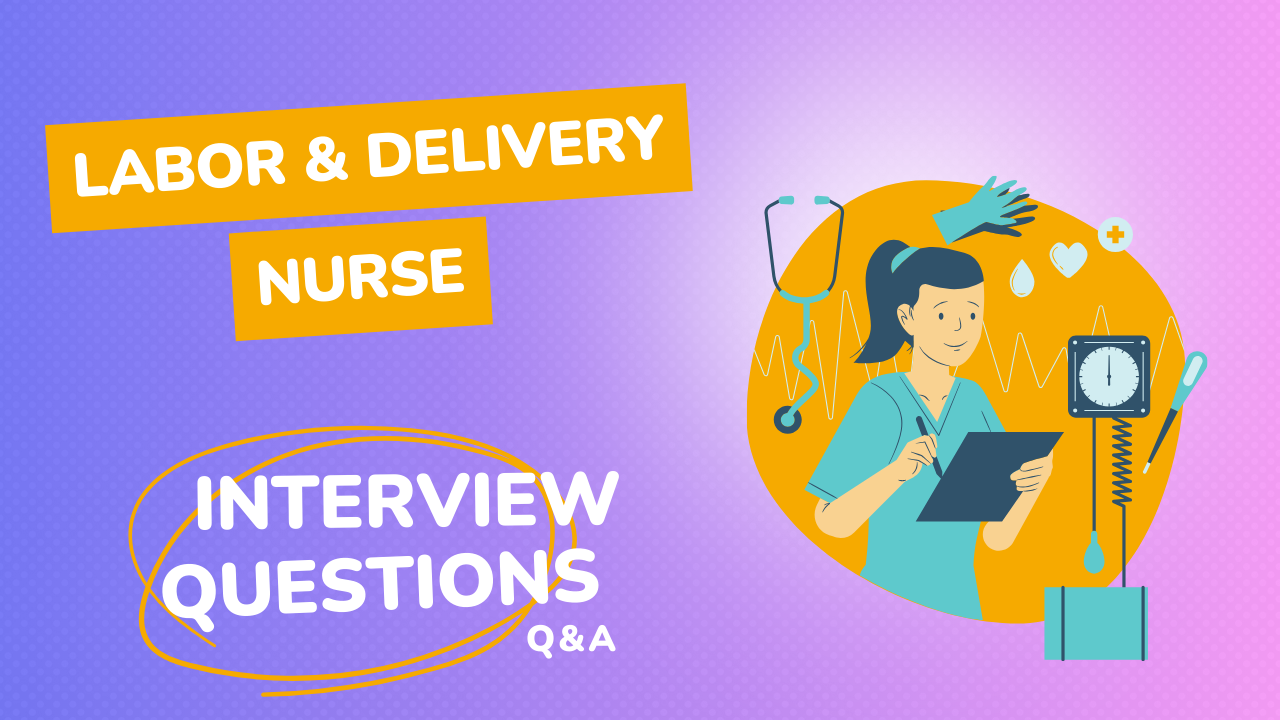Blog Detail

How to crack Medical Coding Specialist Interview in the UK
Jun 2, 2024
In the ever-evolving landscape of healthcare, the role of a medical coding specialist has become increasingly crucial. These professionals play a vital role in ensuring accurate coding of medical procedures and diagnoses, translating complex healthcare information into universally recognized codes. As the demand for skilled medical coding specialists continues to rise in the United Kingdom, securing a position in this field requires not only the right qualifications but also a successful performance in the interview process.
The Importance of Medical Coding in the Healthcare System
Before delving into the intricacies of a medical coding specialist interview, it is essential to understand the significance of their role within the healthcare system. Medical coding serves as the backbone of healthcare data management, facilitating accurate billing, streamlined communication between healthcare providers and insurers, and comprehensive data analysis for improved patient care.
In the UK, where the National Health Service (NHS) is a cornerstone of healthcare delivery, the role of a medical coding specialist becomes even more critical. Accurate coding ensures that the NHS can effectively allocate resources, track disease patterns, and maintain financial stability.
Key Responsibilities of a Medical Coding Specialist
During a medical coding specialist interview in the UK, candidates can expect to be questioned about their understanding of the role's responsibilities. Some key responsibilities include:
- Coding Accuracy: Medical coding specialists are responsible for translating medical documentation into alphanumeric codes. Ensuring accuracy is paramount to prevent errors in billing and maintain the integrity of healthcare records.
- Compliance with Coding Guidelines: Candidates should demonstrate knowledge of coding guidelines and regulations, including the ICD-10 and CPT coding systems. Compliance with these guidelines is essential for consistency and standardization.
- Knowledge of Medical Terminology: An in-depth understanding of medical terminology is crucial for accurately coding procedures and diagnoses. Interviewers may assess a candidate's familiarity with medical terms relevant to their specialty.
- Attention to Detail: Precision is a key attribute for a medical coding specialist. Interview questions may focus on how candidates approach complex medical records, ensuring no details are overlooked.
- Technological Proficiency: Given the increasing reliance on electronic health records (EHRs), candidates should showcase their proficiency in relevant coding software and their ability to adapt to evolving technologies.
Preparing for a Medical Coding Specialist Interview in the UK
Success in a medical coding specialist interview requires careful preparation. Candidates should consider the following aspects:
- Reviewing Coding Guidelines: Refreshing knowledge of coding guidelines, particularly ICD-10 and CPT, is essential. Interviewers may pose scenario-based questions to assess a candidate's ability to apply these guidelines accurately.
- Staying Informed about Healthcare Regulations: The healthcare industry is subject to constant regulatory changes. Candidates should be aware of recent updates and demonstrate their commitment to staying informed about evolving coding standards.
- Showcasing Analytical Skills: The ability to analyze complex medical records and extract relevant information is vital. Candidates should be prepared to discuss their approach to challenging cases and how they prioritize information for accurate coding.
- Highlighting Continuous Learning: Employers value candidates who actively seek opportunities for professional development. Discussing any additional certifications, workshops, or courses related to medical coding can strengthen a candidate's profile.
- Effective Communication Skills: Given the collaborative nature of healthcare, effective communication is crucial. Candidates should be prepared to discuss how they communicate with other healthcare professionals, ensuring clarity in coding decisions.
Navigating Common Interview Challenges for Medical Coding Specialists
In addition to showcasing technical skills, candidates should be prepared to address common challenges that may arise during a medical coding specialist interview:
- Handling Stress and Pressure: The nature of medical coding can be demanding, requiring precision under tight deadlines. Interviewers may assess how candidates handle stress and pressure, ensuring they can thrive in a fast-paced environment.
- Problem-Solving Abilities: Scenarios involving ambiguous or incomplete medical records may be presented to assess a candidate's problem-solving skills. Demonstrating a logical and systematic approach to resolving coding challenges is crucial.
- Collaboration and Teamwork: Medical coding specialists often work as part of a larger healthcare team. Candidates should be ready to discuss their experience collaborating with other healthcare professionals and contributing to the overall success of the team.
- Adaptability to Technology Changes: The healthcare industry is continually evolving, with advancements in technology influencing how medical coding is performed. Candidates should emphasize their adaptability to new coding software and technologies.
- Ethical Decision-Making: Interviewers may present ethical dilemmas related to coding decisions. Candidates should be prepared to discuss their ethical framework and how they approach situations where conflicting priorities may arise.
20+ Common Interview Questions for Medical Coding Specialist and their Answers with Examples
Certainly! Below are 25 common interview questions and answers for a medical coding specialist position in the UK:
- Can you explain your understanding of medical coding and its importance in healthcare?
- Answer: "Medical coding involves translating medical diagnoses, procedures, and services into alphanumeric codes for documentation and billing purposes. Accurate coding ensures proper reimbursement, streamlined communication, and comprehensive data analysis in healthcare."
- What coding systems are you familiar with?
- Answer: "I am proficient in ICD-10 (International Classification of Diseases, 10th Revision) for diagnoses and CPT (Current Procedural Terminology) for procedures. I also have experience with HCPCS (Healthcare Common Procedure Coding System) Level II codes."
- How do you ensure accuracy in medical coding?
- Answer: "I ensure accuracy by carefully reviewing medical documentation, consulting coding guidelines, and verifying codes against the provided diagnoses and procedures. I pay meticulous attention to detail to avoid errors."
- What steps do you take to stay updated on coding guidelines and regulations?
- Answer: "I regularly participate in continuing education courses, attend coding seminars, and subscribe to reputable coding publications. Additionally, I stay informed about industry updates through professional associations and online forums."
- Can you describe your experience with electronic health records (EHRs) and coding software?
- Answer: "I have extensive experience working with various EHR systems and coding software, including [mention specific systems/software]. I am adept at navigating electronic records and efficiently coding within these platforms."
- How do you handle a discrepancy between the physician's documentation and the assigned code?
- Answer: "In such situations, I prioritize accuracy and compliance with coding guidelines. I would seek clarification from the physician or relevant healthcare provider to ensure the code reflects the documented services accurately."
- Describe a challenging coding scenario you encountered and how you resolved it.
- Answer: "I encountered a complex case involving multiple procedures and conflicting documentation. I meticulously reviewed the medical records, consulted coding guidelines, and collaborated with the healthcare team to clarify details and assign appropriate codes."
- How do you maintain confidentiality and compliance with patient privacy laws?
- Answer: "I adhere to strict confidentiality protocols outlined by HIPAA (Health Insurance Portability and Accountability Act) and other relevant regulations. I ensure that patient information is handled securely and only accessed by authorized personnel."
- What strategies do you employ to manage your workload and meet deadlines?
- Answer: "I prioritize tasks based on urgency and complexity, utilizing time management techniques such as creating schedules and setting milestones. I also communicate proactively with colleagues to coordinate efforts and ensure timely completion of projects."
- How do you handle stress and pressure in a fast-paced coding environment?
- Answer: "I manage stress by maintaining a positive mindset, staying organized, and focusing on solutions rather than obstacles. I also practice mindfulness techniques and take short breaks when needed to recharge."
- Can you discuss your experience with coding audits and compliance reviews?
- Answer: "I have participated in coding audits and compliance reviews to ensure adherence to coding standards and regulatory requirements. I welcome feedback from audits as an opportunity for continuous improvement."
- How do you handle disagreements with colleagues regarding coding decisions?
- Answer: "I approach disagreements with professionalism and open communication. I seek to understand differing perspectives, present evidence-based arguments, and work collaboratively to reach a consensus that aligns with coding guidelines."
- What measures do you take to prevent coding errors and mitigate potential risks?
- Answer: "I implement quality assurance measures such as regular code reviews, ongoing training, and documentation audits. I also stay vigilant for coding trends and updates to minimize errors and enhance accuracy."
- Can you discuss your familiarity with reimbursement methodologies and payer guidelines?
- Answer: "I have a solid understanding of reimbursement methodologies, including fee-for-service, value-based care, and bundled payments. I stay informed about payer guidelines to ensure accurate coding and billing practices."
- How do you stay organized when managing a high volume of coding assignments?
- Answer: "I utilize organizational tools such as coding templates, checklists, and electronic reminders to prioritize tasks and track progress. I also maintain clear documentation to facilitate efficient workflow management."
- Describe a time when you had to adapt to changes in coding regulations or software updates.
- Answer: "I encountered a significant update to coding regulations that required adjustments to our coding processes. I promptly researched the changes, conducted training sessions for the team, and implemented necessary updates to ensure compliance."
- What motivated you to pursue a career in medical coding?
- Answer: "I was drawn to the dynamic nature of healthcare and the opportunity to contribute to accurate billing and data analysis. Medical coding allows me to combine my analytical skills with a passion for healthcare quality and efficiency."
- How do you handle confidential or sensitive information in your role as a medical coding specialist?
- Answer: "I handle confidential information with the utmost discretion and respect for patient privacy. I adhere to HIPAA guidelines and only access patient records when necessary for coding purposes."
- Can you discuss your experience with coding denials and the appeals process?
- Answer: "I have experience in analyzing coding denials, identifying root causes, and preparing appeals with supporting documentation. I collaborate with the billing department and clinical staff to address denials promptly and minimize revenue loss."
- How do you keep abreast of changes in healthcare policies and regulations impacting medical coding?
- Answer: "I regularly monitor industry publications, attend professional conferences, and participate in webinars to stay informed about evolving healthcare policies and regulations. I also engage in discussions with colleagues to share insights and best practices."
- Describe a situation where you had to multitask effectively while maintaining accuracy in coding.
- Answer: "I encountered a scenario where I had to code multiple patient records simultaneously while ensuring accuracy and compliance with deadlines. I prioritized tasks based on urgency, allocated sufficient time for each record, and maintained focus to prevent errors."
- How do you handle feedback and constructive criticism regarding your coding accuracy?
- Answer: "I welcome feedback as an opportunity for professional growth and improvement. I actively seek guidance from experienced mentors, participate in coding forums, and take proactive steps to address areas for development."
- Can you discuss your experience with coding software implementation and optimization?
- Answer: "I have been involved in coding software implementation projects, including system testing, user training, and workflow optimization. I collaborate with IT teams and end-users to ensure seamless integration and maximize efficiency."
- How do you ensure compliance with coding and billing regulations while maintaining productivity?
- Answer: "I balance productivity with compliance by adhering to coding guidelines, staying informed about regulatory changes, and leveraging technology to streamline workflows. I prioritize accuracy over speed to mitigate compliance risks."
- What strategies do you employ to keep abreast of coding trends and best practices in your specialty area?
- Answer: "I actively participate in professional development activities such as specialty-specific coding workshops, webinars, and networking events. I also engage with industry thought leaders and leverage online resources to stay current on coding trends and best practices."
These questions and answers can serve as a valuable reference for candidates preparing for a medical coding specialist interview in the UK. It is essential to customize responses based on individual experiences, qualifications, and the specific requirements of the role and organization.
Interview tips on Medical-Coding-Specialist:-
Certainly! Here are some interview tips tailored specifically for individuals applying for medical coding specialist positions in the UK:
- Understand the Role: Familiarize yourself with the responsibilities and requirements of a medical coding specialist in the UK healthcare system. Research coding standards, regulations, and guidelines such as ICD-10 and CPT.
- Review Your Resume: Be prepared to discuss your education, certifications, work experience, and any relevant skills that make you a suitable candidate for the position. Highlight accomplishments and experiences that demonstrate your proficiency in medical coding resume.
- Practice Coding Scenarios: Brush up on your coding skills by practicing with medical records and assigning appropriate codes. This will help you demonstrate your coding accuracy and proficiency during the interview.
- Stay Updated: Keep abreast of recent developments and changes in medical coding standards, regulations, and technology. Stay informed about industry trends, best practices, and emerging technologies related to medical coding.
- Be Familiar with Coding Software: If the job requires familiarity with specific coding software or electronic health record (EHR) systems, ensure that you are proficient in using them. Familiarize yourself with the features and functionalities of the software to demonstrate your competence during the interview.
- Prepare for Behavioural Questions: Anticipate behavioural questions that assess your problem-solving skills, attention to detail, ability to work under pressure, and communication skills. Use the STAR (Situation, Task, Action, Result) method to structure your responses effectively.
- Demonstrate Attention to Detail: Highlight your meticulous attention to detail, as accuracy is paramount in medical coding. Discuss how you verify documentation, cross-reference codes, and ensure compliance with coding guidelines to minimize errors.
- Emphasize Compliance and Ethics: Showcase your commitment to ethical coding practices and compliance with healthcare regulations, including patient privacy laws (e.g., HIPAA). Discuss how you uphold confidentiality and integrity in handling sensitive medical information.
- Showcase Problem-Solving Skills: Share examples of challenging coding scenarios you've encountered and how you resolved them. Discuss your analytical approach, research methods, and collaboration with healthcare professionals to achieve accurate coding outcomes.
- Communicate Effectively: Practice clear and concise communication during the interview. Demonstrate your ability to articulate complex coding concepts in a manner that is understandable to non-coders. Pay attention to your tone, body language, and professional demeanor.
- Highlight Continuous Learning: Showcase your commitment to ongoing professional development and learning. Discuss relevant certifications, training programs, workshops, or seminars you've attended to expand your knowledge and skills in medical coding.
- Research the Employer: Familiarize yourself with the organization's mission, values, culture, and any recent initiatives or projects related to healthcare coding. Tailor your responses to align with the employer's goals and priorities.
- Ask Intelligent Questions: Prepare thoughtful questions to ask the interviewer about the role, team dynamics, career advancement opportunities, training programs, and organizational culture. This demonstrates your genuine interest in the position and the company.
- Dress Appropriately: Dress professionally for the interview, reflecting the standards of the healthcare industry. Opt for conservative attire that conveys professionalism and respect for the role and organization.
- Arrive Early and Be Prepared: Plan to arrive at the interview location early to allow for unforeseen delays. Bring copies of your resume, certifications, and any relevant documents in a neat portfolio. Familiarize yourself with the interview format and logistics in advance.
By following these interview tips and adequately preparing for the medical coding specialist interview, you can present yourself as a qualified and competent candidate capable of excelling in the role. Remember to stay confident, composed, and enthusiastic throughout the interview process.









